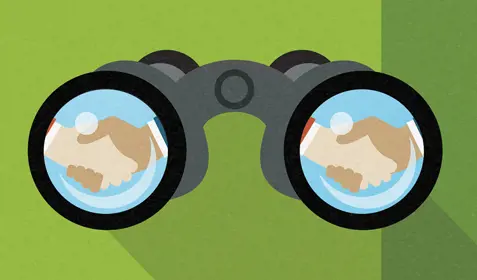Sometimes the customer isn't right. Learn to grow your business by getting rid of these four types of problem clients.
When issues arise with the people who buy your products and services, noted customer service guru, Shep Hyken, says, "Don't just fix the problem. Fix the customer." Shep wisely points out that it's just as important to repair your relationship with customers as it is to deal with the technical side of whatever problems they are experiencing with your product or service.
However, there are times when you need to sever your relationship with certain customers or clients. In other words, as much as we hate to do it, sometimes you have to fire the customer.
This is, of course, a decision that cannot be taken lightly. Right now, you may be feeling uneasy about one or more of your customers, but you just aren't comfortable about what to do next. Let me give you some perspective, guidelines, and rationale that will help you make the right decision and give you the confidence to carry out your decision. Here are some situations to consider:
You know the costs that go into manufacturing your product, buying your inventory, or providing your service. However, do you know the hours your team spends selling and servicing these items?
If you own a print shop, for example, and you find that one customer takes up three times as many hours as your average customer, it's probably time to start turning down that person's business. The same thing applies to your salesforce. If closing a sale and maintaining a particular account eats up far more time than the average account, you might be best served by moving on.
The old saying that "time is money" is true and when certain customers routinely take far more time than average, you are losing opportunities. In other words, your time would be better spent finding new and less demanding customers.
There are some customers that are a pain in the you-know-what to deal with. If they are merely picky or eccentric, that's usually fine. However, there are some behaviors that cross the line, such as:
- Disrespecting your employees
- Ignoring personal boundaries
- Dishonesty
- Causing too much negativity
You need to put your team first. If your employees feel safe and happy at work, that will be reflected in everything they do, and your small business will greatly benefit. But if they feel threatened, belittled, or engulfed in a cloud of negativity, that will also be reflected in their work. Productivity will go down. Customer relationships will suffer, and turnover will go through the roof.
Also, if a customer proves to be dishonest, it's really impossible to develop a long-term business relationship. You must know that your customers will keep up their end of any business agreement you enter into together. If you continue to work with a customer that you know is dishonest, you will eventually get burned and it will be your fault.
In the long run, your business will prosper more without these problem customers.
It is common for small business owners to work with customers who are having trouble paying their bills. However, there must be a point at which you draw the line, stop extending credit, and cease selling to or servicing the customer.
Look at the progress the customer is making on the balance owed. Is it significantly dropping, staying about the same, or increasing? If the customer isn't showing a commitment to paying down the balance, it's probably time to break the relationship, send the bill to collections, and move on.
We've already discussed customers who can be picky or who are a bit eccentric. Now let's talk about customers who are always demanding special treatment or changes to your product or service that no one else ever seems to need. I'm talking about the "high-maintenance" customer.
If the changes or tweaks are minor, there is no reason to let them upset you (they might even be clues for additions to your catalog). However, if they are more significant and constant and reduce your profit margins, you need to take action. These may also be the customers who are always asking for "special deals" and seem offended if you balk at their requests.
In most cases, it's a good idea to have a frank discussion with your troublesome customers before firing them to see if you can resolve the issues before parting ways. Of course, with more serious issues, such as a blatant case of sexual harassment or other personally threatening behavior, you should politely sever ties immediately.










